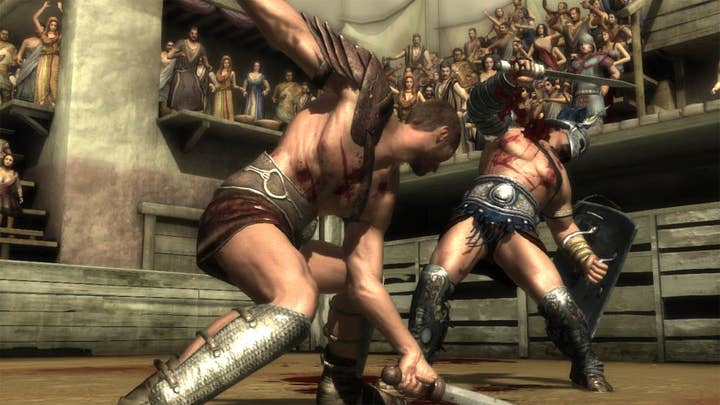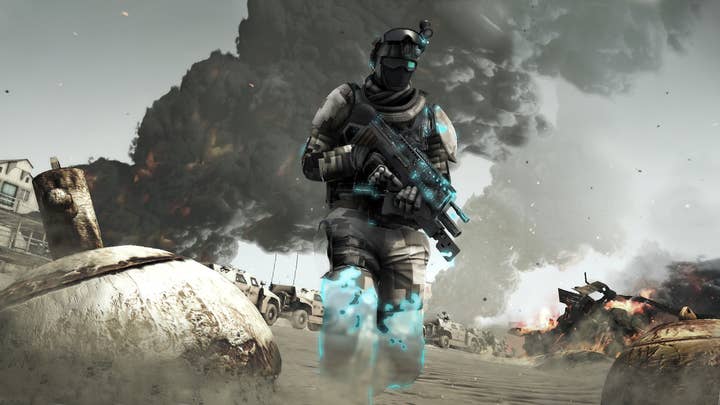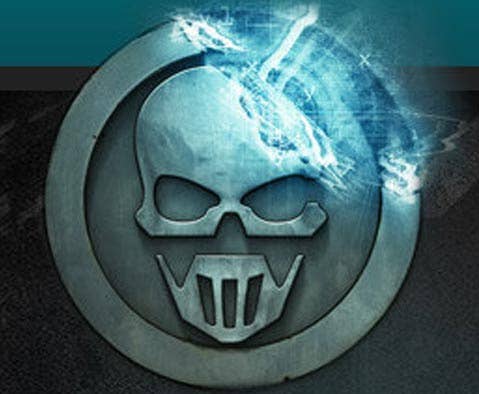Ubisoft's Early: New business models like new platforms "on steroids"
Ubisoft's VP of Digital on new platforms, new business models, and cross-platform connections
GamesIndustry International cornered Chris Early, Vice President of Digital for Ubisoft, at Ubisoft's recent event introducing new digital titles. The topics ranged from new platforms to new business models, and the challenges facing the industry in the years ahead. Ubisoft is introducing an array of titles on Facebook, iOS, Android, online and through Xbox Live, PSN, and Nintendo Network, as well as for PC and consoles. It's a broad range of titles for a widening variety of platforms.
The landscape is changing rapidly and the next six months look challenging from Early's perspective. "Many more platforms, many more places," Early said. "It's an exciting time. We've got the first of a new round of consoles coming out, there continues to be a good mix of new hardware coming out on mobile, and the tablet side of things. What we see from our player's perspective is they're playing in more places than ever before. Our challenge as a creator of content is, how do we get the brands they love in front of them regardless of what they've got in their hands? We're on more platforms than ever before. And we're stronger on all those platforms because that's the way Ubisoft always is. Our job is to get our content in the hands of our players."
Does it matter who wins the platform wars, then, if Ubisoft is on all of them? "The economist in me says it does matter, because if you guess wrong too many times you're not going to be able to make your content come out anywhere. So far we haven't been that far off," Early noted.
Early sees the rapidly expanding tablet market as an interesting opportunity for Ubisoft, with the 7-inch tablet form factor raising interface questions. "It's an interesting creativity challenge for us, because the larger current iPad size is close enough to a [computer] screen that you don't have to reformat, whereas iPhone is clearly too small, and you have to redesign," Early said. "It's important to design for the device. The 7-inch is going to be an interesting mix, because there will be some people who say 'It's just like a tablet, shrink it a little' and there are some people who go 'We need to change the interface, it's small enough to make a real change.'"
The lower prices of smaller tablets looks like an advantage to Early. "The price makes them much more accessible to the general population, which probably speaks to a rise in more casually accessible entertainment, which probably means you'll have more movement up from the phone than down from the console. It's really a portable device."
"If you guess wrong too many times you're not going to be able to make your content come out anywhere"
Chris Early
Smartphones are also an important market for Ubisoft, and Early is bullish on the possibilities. "We're seeing tremendous improvements in the capabilities of these devices as well," Early said. "You could argue that Ubisoft has great expertise from 25 years of making console games; you have a certain expectation of performance, you have a certain expectation of graphic quality, and as they start to approach that, or at least the lower end of that, you end up with a lot more opportunities which you can actually develop. To me, I think about the path from a Commodore 64 to the first really strong processor in a PC - you could do so much more."
Looking at Minecraft clearly says that it's not just graphics that sells a game these days, and Early agrees. "Certainly not; that's the beauty of some older games is they were absolutely awesome game play and game design, because they didn't have graphics to rely on. Being the game nerd that I am, I always wanted someone to take that learning and now dress it up nice."

It's not just new platforms Ubisoft is developing for; there are new business models to consider. Is that harder than adjusting to new platforms? "Yeah, I think it is harder," admitted Early. "Particularly for companies like ours that are rooted in a particular model or have a long history of it. That's not to say we aren't doing it well; I think we are doing it well. But it is a much more conscious effort to change the business model than it is to change platforms. Because we make creative games already; we make great entertainment experiences. Now we have to look at a new platform and figure out the characteristics of that and make it a compelling entertainment experience there."
Early continued, "The business model is like that platform change, but on steroids. You have to start at the very beginning of the design cycle and design in the new business model. It's no longer just better graphics or better control features. It compels you to do a variety of different things. You've bought games with a 20-minute tutorial. We were lazy as an industry and did that because we already got their money and we could make them sit through that. Not anymore! That just doesn't fly. You don't have a 20-minute tutorial on how to play a Facebook game."
It's great for players because there are so many options, but it's putting downward pricing pressure on games everywhere. When you can play Ghost Recon Online and get a great first-person shooter experience, and you don't have to pay anybody $60 to start playing, does that put more pressure on publishers - Ubisoft included - who are trying sell the same type of experience for $60?
"I think it puts pressure on us to create quality content at both levels," said Early. "We have to make Ghost Recon Online a quality piece of entertainment that you will actually pay for. I don't think the value exchange of currency for entertainment value is wrong; that's an OK value exchange, and I do it when I go to the movies. Sometimes when the movie is really bad, I regret that value exchange. In this model, you have to go see the movie first, then you decide what you're going to pay, if you want to continue seeing the next episode. Or you don't ever have to pay if you don't want to. That's the complication. We need to make it so that you want to pay... I think it's going to continue that way. Models show that it works in other industries - radio, satellite radio, video, TV."
Business models for games now include subscription, pay per use, rental, ad-supported, free-to-play, and many variations and combinations. Mobile games have gone from ad-supported or paid to free-to-play games, and those quickly took over all the top-grossing slots once in-app purchasing came along. Is that going to happen to console games? "We'll see," mused Early. "I think it's great that we're part of the pilot program on Xbox Live to bring free-to-play games to the console. Microsoft has a pilot program coming out where there are three free-to-play games coming out on their console, and we're the only third-party that's doing it; two are their own studios, and then us."
Microsoft is allowing Ubisoft to put its camel's nose into its tent, in other words. "They are, and Spartacus is going to be that free-to-play game. We're going to be the only publisher that has free-to-play games on both home consoles [Xbox 360 and PS3]." So when people are looking to shoot camels, are they going to come looking for Early? "I've been that target before," Early laughed. "I've been down that path."
"We're part of the pilot program on Xbox Live to bring free-to-play games to the console"
Chris Early
Early pulled out a pen and paper to draw a graph showing why this business model makes sense, his background in economics betraying itself. "The interesting thing is, if you think about the value in a simple economic curve, the higher the price, the lower the quantity; the lower the price, the higher the quantity," Early said. "Here we are at $60; it's always this box of revenue. We don't get anybody who's willing to spend more, we don't get anybody who's willing to spend less."
If you assume a perfect economic system, free-to-play captures the value of the rest of that curve. The people who are willing to spend $60 will still spend $60, in a free-to-play game that's interesting, properly constructed and designed. That way, the person who's willing to spend $500 will also spend $500. We've seen that in some games. We started going down this path by adding DLC, so people can buy DLC or a season pass. We've been going down this way for years by price protection and price drops, and the price waterfalling system to try to take advantage of this part of the curve. The free-to-play model says 'I can address that entire curve at the same time.'"
There have been some complaints about games with DLC where the players feel that the DLC should have been included for $60. "There's an equation for a $60 game, which is 40 hours of play; if you deliver 10 hours of play for $60, and then it has a few more things that are each $10, I might feel the same way," noted Early. "On the other hand, how many hours of play is Skyrim? Maybe they should have charged more for that amount of content. The interesting side of free-to-play is you get help in determining that."
One thing that hasn't been internalized yet is that digital distribution potentially frees up game design because there is no longer a need to design around the constraints of the physical packaging. Publishers had to charge $40 or $50 or $60 because of the costs of packaging and distribution, and the percentage given to retailers, and therefore games had to have enough content to justify that price. Now that restriction is removed for digital products, and theoretically a title could just be $20 with less content, then sell additional content as the popularity of the game demands.

"This is not just an economics problem, this is a design problem," Early noted. "Games have to be designed that way." Early sees an analogy to movies and television. "I love looking at other industries for the way things work," he said. "When you look back at the movie industry in the early days of television, television had to learn how to make a much shorter version of a movie and hook you so you wanted to come back and watch it the next week. It started with serial movies, the shorts in the theaters. This is no different than that. Those producers had to make different movies, and had to focus on creating a different experience than what they had been doing before. Those that didn't, and just tried to make a short version, failed. Those who were successful made you want to come back and see where it was going the next week. The same thing will happen in this industry too. You will have people who get it from a design standpoint, and leave you at the point where you want more, whether it be episodic, whether it be access to some other things you want to buy, or you want a faster progression to get to certain things."
Is there maybe an intermediate point between the several years of development for a console title and the several months of development for a mobile title, and charging $20 instead of $60 for a title? "Or maybe not charging $20 for it; that's what we're doing with Spartacus," Early noted. "That's a fighting game that rivals some really good fighting games that people pay $60 for. The biggest thing that came out of ComicCon was that people thought that was a $60 console title. We didn't announce that it was free-to-play at the last show because Microsoft wasn't letting us talk about it yet, so here we were and people thought it was a full-on console title. We were like 'No, see me later" because it was going to be free."
"The business model is like that platform change, but on steroids"
Chris Early
Early pointed out another Ubisoft game using this method. "Ghost Recon is another example; that's a good-looking game, that's a AAA game. It may not have a single-player campaign but you're also not paying for that. They've done a very good job; almost everything in the game that you can buy with cash you can buy with earned currency also. If you're my son, you have tons of time to earn the earned currency - me, no way. I'm going to exchange my cash for my time. I'm going to level up to where I can get that next gun, and he's going to play for another ten hours to earn enough currency. I'm going to spend the cash and get that gun right now. The game lets us use whatever we have an abundance of; in his case, it's time."
The overall advantage to the free-to-play model is that it creates a larger overall audience, that hopefully can be guided to a publisher's other games. Will Ubisoft ultimately add advertising to the ways in which it monetizes its audience? "If you look at the Ghost Recon game, you'll notice there's a Razr logo in a variety of places on the maps. There's a cross-promotional opportunity going on," Early said.
There are a huge number of people playing games, but advertisers and marketers aren't really reaching them very well yet. Why is that? Early feels it's inevitable. "In a medium like this you have this opportunity for actual measurement of interaction with the brand. For some of our Facebook games we do this: 'Watch the video, get some pills for Dr. House.' At that point, it's a service, and more people want to do that as they see the immediate benefit of yes, you're going to expose me to your message, I'm going to learn about your product, and in return I'm going to get something I want for your game."
The benefit for advertisers and marketers is clear, Early feels. "Even if it's not targeted exactly for the interest, you're getting the engagement which you can't always guarantee. If you've got to watch the whole ad and maybe click on something at the end of it to earn your item, because you exchanged your time instead of your money for that item, we know the psychology behind that. Much higher retention, unaided recall later on if you've seen the video and watched it all the way through. That's what brand marketers are paying for, and this is the perfect medium to be able to do that."
"Sixty-five percent of the people who play the Facebook game choose the Future Soldier reward"
Chris Early
Early sees Ubisoft as on the cutting edge of both platform change and business model change at the same time. Doesn't that make things complicated? "I wish I had a great crystal ball," Early laughs. "That's the fun of this industry; you get to try, you get to do things, and when stuff hits like the connection rate we see between Ghost Recon Commander and Ghost Recon Future Soldier, we're like 'Wow! We did something right!'"
Early went on, "In Ghost Recon Commander, the Facebook game, when you play the game at the end of every mission you can choose some rewards. Your rewards are things that would normally cost you money to buy, and they help the gameplay. Or, you can choose a reward for Future Soldier - when you play Future Soldier you can use that gun. Sixty-five percent of the people who play the Facebook game choose the Future Soldier reward. That's really good. After Future Soldier came out, we measured Uplay as the thing that connects them together. For Uplay users, the people who play Commander, eighty-three percent play Future Soldier. It absolutely worked for brand extension, for having people extend across multiple platforms. Eighty-three percent! We didn't know it would be that good."
Is this a fusion of marketing and game design? "I would say it's new marketing, or it's a more performance-oriented marketing," Early said. "This is what you see in some of these games with value exchanges for ads. It's no longer an intrusion; if you're telling me something I want to know about, or providing a service I want anyway, like 'I want those grenades,' I'll watch your ad to get the grenades. That's now a service to me, because I didn't have to buy them. I bought them with my time. For those guys who don't want to do that, or their time is more valuable, fine, just go buy them. Don't spend the time watching the ad. That's the choice that I think makes it powerful."









